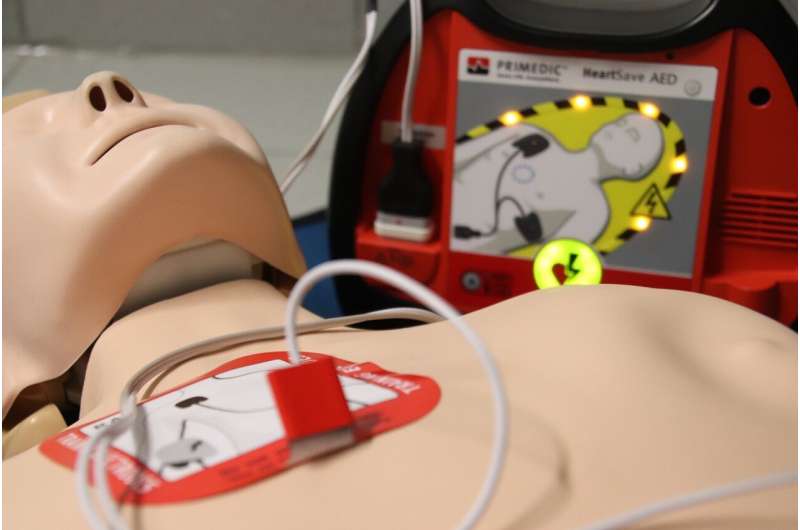Decline in Cardiac Arrest Survival Rates During Early COVID-19 Years

A recent study reveals that COVID-19’s early years led to decreased survival rates for out-of-hospital cardiac arrests, with notable racial and ethnic disparities persisting through 2022. Learn about the impact and ongoing challenges.
The early years of the COVID-19 pandemic saw a significant decline in survival rates for individuals experiencing out-of-hospital cardiac arrests (OHCA). A comprehensive study led by researchers at UT Southwestern Medical Center, published in the journal Resuscitation, indicates that these rates not only dropped overall but also revealed persistent disparities among different racial and ethnic groups. Before the pandemic, survival rates from cardiac arrest had been gradually improving due to increased public awareness, faster emergency response, and wider access to automated external defibrillators (AEDs). In 2019, the overall survival rate was approximately 9.9%, with lower rates still present in Black and Hispanic communities.
However, in 2020, the survival rate declined to about 9%, with Black and Hispanic populations experiencing even more pronounced declines. Black and Hispanic communities saw a 16.5% decrease in survival rates compared to pre-pandemic levels, with other communities also affected but to a lesser degree. Data from the Cardiac Arrest Registry to Enhance Survival (CARES)—covering 30 states and additional communities—showed that these disparities persisted through 2022.
Researchers analyzed data from over 500,000 OHCA cases and noted that during the pandemic, there was an increase in drug-related arrests, contributing to the rise in cardiac emergencies. Despite expectations that survival rates might recover by 2022, they remained 8-10% below pre-pandemic levels, suggesting ongoing challenges in emergency cardiac care.
Dr. Saket Girotra, senior author of the study, emphasized the urgent need to address long-standing racial and ethnic disparities in cardiac arrest outcomes. The study highlights that the pandemic exacerbated existing inequities and underscores the importance of ongoing efforts to improve emergency response systems and community health interventions in vulnerable populations.
This research sheds light on the lasting health impacts of COVID-19, particularly for minority groups, and calls for targeted strategies to improve survival rates and reduce disparities in emergency cardiac care.
Stay Updated with Mia's Feed
Get the latest health & wellness insights delivered straight to your inbox.
Related Articles
Leveraging Data and Artificial Intelligence to Enhance Healthcare Systems
Discover how data and artificial intelligence are transforming healthcare systems by enabling real-time insights, improving patient outcomes, and fostering system-wide learning for a more efficient and equitable future.
Innovative Study Uses Jersey Pull Simulations to Predict Non-Contact ACL Injuries in Athletes
A University of Kansas study uses jersey pull simulations to understand and prevent non-contact ACL injuries in athletes, emphasizing core strength and biomechanics. Learn how biomechanics research is advancing injury prevention strategies.
Innovative AI-Enabled Eyewear Monitors Eye Health Through Blinks
Penn researchers have created BlinkWise, a smart glasses device that uses AI and radio signals to monitor eye health, fatigue, and cognitive states by tracking blinking patterns in real-time. This portable system promises new possibilities in health monitoring and safety.



